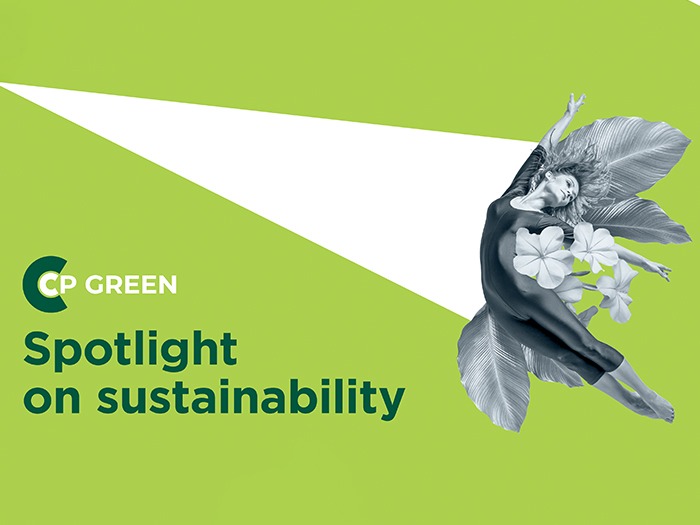Eco-friendliness was not enough. Claypaky‘s objective is to design a brighter future by reducing its carbon footprint and increasing its energy-efficiency.
The carbon footprint is the total amount of greenhouse gas emissions related to all the input and output of resources and energy used in the entire lifecycle of our products. As the climate is changing, it is fundamental to reduce the GHG emissions. To be aligned with the global objective of keeping the temperature rise below 1.5 °C, Claypaky has decided to accept this challenge!
Claypaky has already implemented several projects to reduce the environmental impact of its business activities. Here are just few examples:
- Implementation of the Kanban control system into our manufacturing process to increase the efficiency of the operation and reduce waste.
- Optimization of the compressed air production and testing procedures leading to the reduction of the total electrical consumption and CO2.
- Elimination of all solvent-based coloured ink on our product packaging.
- Paperless operation in the production process and paperless fairs.
But this is only the starting point for a much bigger key company initiative.
Claypaky has launched a new company initiative “CP Green – Spotlight on Sustainability” to approach the topic of environmental sustainability with even greater focus and in a more systematical way.
To coordinate all the corporate initiatives, integrate them across the whole organization and secure the execution of the changes, a Sustainability team, led by Claypaky Executive Andreas Huber has been formed.
“Sustainability became a high priority in Claypaky as we aim pioneering sustainable Entertainment products and operations for a safe and better world – driving sustainability is a crucial part of fulfilling our company ambitions and goals.” Says Marcus Graser, Claypaky CEO.
“My mission is orchestrating the Sustainability & Environment activities and foster lasting connections across the company inspiring and engaging colleagues across the Claypaky organization in their work to support the Sustainability & Environment activities.” Says Andreas Huber. “I will listen to ideas from any colleague on how we can improve further”.
Thanks to our cooperation with Spinlife, spinoff of the University of Padova, supporting Claypaky with the strategic environmental management and sustainability management techniques, a real scientific and strategical approach has been adapted in the project which is structured in 3 main phases:
– Quantification of our current Carbon Footprint.
– Definition and implementation of a multi-year strategic carbon management plan to reach Carbon Neutrality.
– Definition of the concrete steps for the compensation and reduction of the company’s Carbon Footprint.
In the first phases, the focus is on the quantification of current Carbon Footprint to understand the environmental hot-spots and what are the efforts to improve the current situation. The impacts are going to be identified throughout the “Life Cycle Assessment” approach – an engineering methodology focusing on the quantification of the overall environmental impacts of a product or a process throughout its lifecycle according to internationally recognized standards.
After the analysis, the detailed carbon management plan will be defined with concrete measures on how to compensate, reduce and eventually neutralize the company’s carbon footprint. This will include both the purchase of carbon credits and actions aimed at a more sustainable management of the various activities linked to their value chain.
All of this will be done in compliance with the official “ISO 14064-1” certification standard and with the support and validation of a third-party certification body. Claypaky is proud of being the industry pioneers in aiming for the certification!
“Working towards a climate neutral future is fundamental to pursue a sustainable development. Claypaky understood the urgency to act now and believes the best way to achieve this is by adopting a scientific approach to tackle climate change impacts of its activities so as to ensure real results are delivered. Spinlife is proud to contribute to this process and to independently support the company in achieving this ambitious goal. “Says Prof. Alessandro Manzardo.
Spinlife, a spin-off of the University of Padova, guides public and private companies in analyzing and implementing strategic and sustainable solutions adopting a scientific approach. It helps organizations and local communities in reinventing themselves, optimizing their processes and certifying their progresses, creating a bridge between business and sustainability.
Flights are energy-intensive and depend on fossil fuels. These emissions from aircraft flights stay in the atmosphere longer. Because aircraft emissions are released high in the atmosphere, they have a significant impact on global climate change. To reduce the environmental impact and partially offset the emissions produced by the business travels, Claypaky has recently purchased 5.879 carbon credits supporting the „Asahan 1 Hydroelectric Power Plant 2 x 90 MW “ – this is a run of-river hydroelectric power project in North Sumatera Province developed by PT Bajradaya Sentranusa.
The Project is taking advantage of Asahan River that receives water from its natural source, Lake Toba. The objective of this Project is to supply zero emission energy to Sumatera Grid, a grid with relatively carbon-intensive electricity supply that is located in Sumatera island and currently has no interconnection with the grid in other islands for example Java and Kalimantan.
On top of that, Claypaky works on the new cartoon packaging to eliminate the usage of the polystyrene, leading to the reduction of the greenhouse gas emissions as the usage of the polystyrene has a significant impact on the global warming. Claypaky is also continuously looking for new ways on how to reduce the energy consumption. The production hall is about to be equipped with the modern energy efficient lighting as well as new laser cutting machines will be installed – leading to the further reductions of the electrical consumption and hence the CO2 emissions on site.


